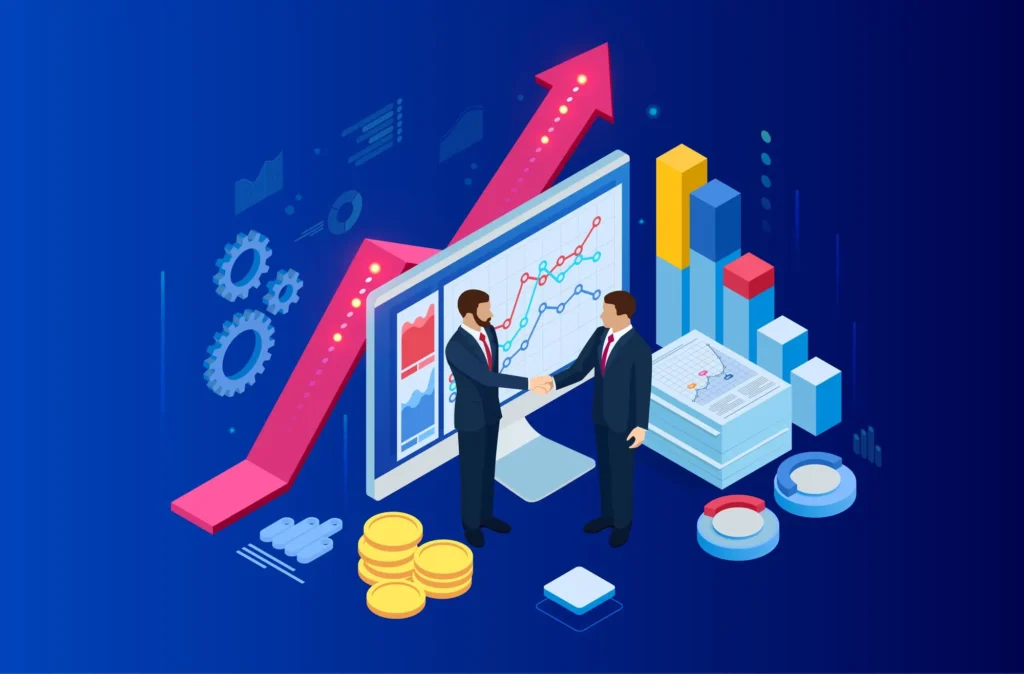Corruption remains one of the most pressing challenges in Indonesia, undermining economic growth, eroding public trust, and perpetuating inequality. Despite significant efforts by the government and anti-corruption agencies, corrupt practices persist, often disguised as legitimate business strategies. Understanding how corruptors operate is crucial to combating this issue effectively.
In this article, we’ll explore the business strategies employed by corruptors in Indonesia, the impact of corruption on society and the economy, and the measures being taken to address this pervasive problem. By shedding light on these tactics, we aim to raise awareness and contribute to the ongoing fight against corruption.
Table of Contents
The Landscape of Corruption in Indonesia
Indonesia has made notable progress in combating corruption over the past two decades. The establishment of the Corruption Eradication Commission (KPK) in 2003 marked a turning point in the country’s anti-corruption efforts. However, corruption remains deeply entrenched in both the public and private sectors.
According to Transparency International’s 2023 Corruption Perceptions Index, Indonesia ranks 102nd out of 180 countries, indicating a significant need for improvement. Corruption manifests in various forms, including bribery, embezzlement, nepotism, and cronyism, often facilitated by complex networks of power and influence.
Common Business Strategies of Corruptors
Corruptors in Indonesia employ a range of strategies to conceal their activities and maximize personal gain. These tactics often involve exploiting legal loopholes, leveraging political connections, and manipulating systems of governance. Below are some of the most common strategies:
1. Shell Companies and Money Laundering
Corruptors frequently use shell companies business entities with no significant assets or operations—to disguise illicit activities. These companies are often registered in offshore tax havens, making it difficult for authorities to trace the flow of funds. Money laundering techniques, such as layering and integration, are then used to legitimize ill-gotten gains.
2. Bribery and Kickbacks
Bribery is a cornerstone of corrupt practices in Indonesia. Corruptors offer bribes to public officials, law enforcement agents, and business leaders to secure contracts, permits, or favorable treatment. Kickbacks, where a portion of the contract value is returned to the corruptor, are also common in procurement processes.
3. Exploiting Regulatory Loopholes
Weak regulatory frameworks and enforcement mechanisms create opportunities for corruptors to exploit legal loopholes. For example, ambiguous licensing requirements or lax oversight in natural resource extraction allow corrupt practices to flourish.
4. Political Patronage and Cronyism
Corruptors often cultivate close relationships with politicians and government officials to gain access to lucrative projects or preferential treatment. This system of political patronage ensures that contracts and resources are allocated based on loyalty rather than merit.
5. Manipulating Public Procurement Processes
Public procurement is a prime target for corruptors due to the large sums of money involved. Tactics include bid rigging, where competitors collude to fix prices, and ghost projects, where funds are allocated to fictitious initiatives.
6. Misuse of State-Owned Enterprises (SOEs)
State-owned enterprises are often used as vehicles for corruption. Corruptors siphon funds through inflated contracts, fraudulent transactions, or the appointment of unqualified individuals to key positions.
7. Exploiting Natural Resources
Indonesia’s rich natural resources, such as coal, palm oil, and minerals, are frequently exploited by corruptors. Illegal logging, mining, and land grabbing are common, often facilitated by collusion between businesses and local officials.
The Impact of Corruption on Indonesia
The consequences of corruption are far-reaching, affecting every aspect of society and the economy. Here are some of the most significant impacts:
- Economic Losses
Corruption diverts public funds away from essential services like healthcare, education, and infrastructure. This undermines economic development and perpetuates poverty. - Erosion of Public Trust
Widespread corruption erodes trust in government institutions and the rule of law. This lack of trust can lead to social unrest and political instability. - Inequality and Social Injustice
Corruption exacerbates inequality by concentrating wealth and power in the hands of a few. It also denies marginalized communities access to resources and opportunities. - Environmental Degradation
Illegal logging, mining, and land grabbing contribute to deforestation, habitat destruction, and climate change. These activities often go unchecked due to corrupt practices. - Impediment to Foreign Investment
Corruption creates an unfavorable business environment, deterring foreign investors who seek transparency and accountability.
Case Studies: Notorious Corruption Scandals in Indonesia
Corruption has long been a significant issue in Indonesia, affecting its political, economic, and social structures. Despite numerous efforts to combat corruption, many high-profile cases have surfaced over the years, exposing the deep-seated nature of corrupt practices in the country. This article explores some of the most notable corruption scandals in Indonesia, highlighting their impact and the legal consequences faced by those involved.
The Bank Century Scandal
One of the most controversial corruption cases in Indonesia is the Bank Century bailout scandal. The case dates back to 2008 when the Indonesian government decided to bail out Bank Century with Rp 6.7 trillion (approximately $710 million) in an effort to prevent economic collapse. However, investigations later revealed that a significant portion of these funds was misappropriated by bank officials and politicians.
The scandal implicated several high-ranking officials, including former Vice President Boediono, who was the Governor of Bank Indonesia at the time. The case triggered widespread public outrage and led to prolonged investigations by the Corruption Eradication Commission (KPK). Despite legal actions, many believe that the case remains unresolved, with some key figures escaping accountability.
The e-KTP Corruption Case
Another major corruption scandal that shook Indonesia was the electronic identity card (e-KTP) graft case. The e-KTP project, launched in 2011, aimed to modernize Indonesia’s national identification system. However, instead of benefiting the public, the project became a vehicle for embezzlement.
Investigations revealed that around Rp 2.3 trillion ($170 million) of the total project budget of Rp 5.9 trillion was stolen through fraudulent contracts and inflated prices. Prominent politicians, including former House Speaker Setya Novanto, were found guilty of orchestrating the scheme. Novanto was sentenced to 15 years in prison, while other officials involved also received various sentences. The e-KTP scandal exemplifies how large-scale corruption can undermine government initiatives meant to improve public services.
The Jiwasraya Insurance Fraud
The Jiwasraya scandal is one of the largest financial fraud cases in Indonesia’s history. Jiwasraya, a state-owned insurance company, was involved in a corruption scheme that resulted in a financial loss of Rp 16.8 trillion ($1.2 billion). The scandal revolved around mismanagement of investments, where Jiwasraya officials, in collaboration with private investors, manipulated stock investments to siphon off funds.
The case led to the arrest of several key figures, including former Jiwasraya President Director Hendrisman Rahim and businessman Benny Tjokrosaputro. They received long prison sentences, and their assets were confiscated to recover state losses. The Jiwasraya scandal highlighted the weaknesses in Indonesia’s financial regulatory system and prompted calls for stricter oversight of state-owned enterprises.
The BLBI Scandal
The Bank Indonesia Liquidity Assistance (BLBI) scandal remains one of the most infamous corruption cases in Indonesia. During the 1997-1998 Asian Financial Crisis, the Indonesian government provided financial assistance worth Rp 144.5 trillion ($10 billion) to struggling banks. However, investigations later uncovered massive misappropriation of these funds.
Several tycoons and bankers were accused of using the funds for personal gains instead of stabilizing their banks. Despite various legal efforts, many of those responsible managed to evade justice by fleeing abroad or exploiting legal loopholes. In recent years, the Indonesian government has renewed efforts to recover the stolen funds, but progress has been slow.
The Pertamina Bribery Case
Indonesia’s state-owned oil and gas company, Pertamina, has been embroiled in multiple corruption cases over the years. One of the most notable cases involved the procurement of liquefied natural gas (LNG), where Pertamina officials were accused of receiving bribes from foreign companies.
Investigations led to the conviction of several Pertamina executives, exposing deep-rooted corruption in the energy sector. The scandal underscored the need for transparency and accountability in state-owned enterprises, which play a crucial role in Indonesia’s economy.
The Worst Presidency in Indonesia Ever
Indonesia, as the largest democracy in Southeast Asia, has experienced various leadership styles since its independence in 1945. While some presidents have made significant contributions to the nation’s progress, others have been marked by controversy, corruption, and mismanagement. This article examines Indonesia’s worst president based on governance failures, economic downturns, and the overall impact on society.
Criteria for Evaluating a Poor Presidency
To determine the worst president, we will evaluate based on:
- Economic Performance: Inflation, GDP growth, and financial crises.
- Corruption and Scandals: Degree of corruption, nepotism, and mismanagement.
- Human Rights Violations: Suppression of freedom, military violence, and political oppression.
- Impact on Society: Public trust, unemployment rates, and national stability.
The Controversial Presidency
One of the most debated presidencies in Indonesian history is that of Suharto (1967-1998). Although credited with economic growth, his leadership was characterized by rampant corruption, authoritarian rule, and suppression of dissent.
Economic Mismanagement and Corruption
Suharto’s New Order regime initially brought economic stability and industrialization. However, this prosperity was built on crony capitalism, where wealth was concentrated among his family and close associates. The Asian Financial Crisis of 1997 exposed Indonesia’s fragile economy, leading to massive unemployment and social unrest. His government’s inability to handle the crisis effectively led to widespread protests and, ultimately, his resignation in 1998.
Human Rights Violations and Political Repression
Suharto’s tenure was notorious for human rights abuses. The mass killings of 1965-66, with an estimated 500,000 to one million people killed under the pretext of eliminating communists, remain a dark chapter in Indonesian history. His government also suppressed opposition, controlled the media, and used military force to silence critics.
Dismantling Democratic Institutions
Under Suharto, Indonesia functioned as a pseudo-democracy where elections were staged, and opposition was heavily controlled. The judicial system was manipulated to serve his interests, making political dissent dangerous.
Comparison with Other Controversial Presidents
While other Indonesian leaders have faced criticism, no presidency has combined economic downfall, human rights violations, and systemic corruption to the extent of Suharto’s regime.
- Sukarno (1945-1967): Struggled with economic policies, but was pivotal in gaining Indonesia’s independence.
- Abdurrahman Wahid (1999-2001): Accused of inefficiency but did not engage in systemic corruption.
- Susilo Bambang Yudhoyono (2004-2014): Criticized for inaction against corruption, but not authoritarian.
And In December 2024, the Organized Crime and Corruption Reporting Project (OCCRP) nominated former Indonesian President Joko “Jokowi” Widodo as one of the world’s most corrupt leaders, alongside figures such as Kenya’s President William Ruto and Nigeria’s President Bola Ahmed Tinubu. The OCCRP ultimately named Syria’s Bashar al-Assad as the most corrupt leader of the year.
Jokowi and his supporters have dismissed the nomination as baseless and politically motivated. They highlight the absence of concrete evidence linking him to personal financial corruption and point to his high public approval ratings upon leaving office.
Critics, however, argue that corruption encompasses more than direct financial misconduct. They accuse Jokowi of undermining democratic institutions and the constitution, particularly through actions perceived as favoring his allies and family members in political appointments. Notably, the Constitutional Court’s 2023 decision, which allowed his eldest son, Gibran Rakabuming Raka, to run for vice president alongside Defense Minister Prabowo Subianto, has been cited as evidence of such influence.
Additionally, Jokowi’s administration has faced criticism for weakening Indonesia’s Corruption Eradication Commission (KPK), leading to concerns about the country’s commitment to combating corruption.
Sources from thejakartapost The OCCRP’s nomination has sparked significant debate within Indonesia, with some viewing it as a call to address systemic issues, while others see it as an unfounded attack on a popular leader.
Impact of Corruption on Indonesia
The recurring corruption scandals in Indonesia have had severe consequences on the country’s development. They have led to financial losses, reduced public trust in government institutions, and hindered economic growth. Corruption also discourages foreign investment, as businesses fear engaging in an environment riddled with unethical practices.
The government has taken steps to strengthen anti-corruption measures, including empowering the KPK, enacting stricter laws, and improving transparency in public procurement. However, challenges remain, as corrupt networks continue to wield significant influence in politics and business.
Efforts to Combat Corruption in Indonesia
Despite the challenges, Indonesia has made significant strides in combating corruption. Key initiatives include:
- Strengthening the KPK
The Corruption Eradication Commission (KPK) has been instrumental in investigating and prosecuting high-profile corruption cases. However, recent legislative changes have raised concerns about the agency’s independence. - Legal Reforms
The government has introduced reforms to improve transparency and accountability, such as the Public Information Disclosure Act and the Anti-Corruption Law. - Whistleblower Protection
Protecting whistleblowers is critical to uncovering corruption. Indonesia has established mechanisms to safeguard individuals who report corrupt practices. - Public Awareness Campaigns
Raising awareness about the impact of corruption and encouraging citizen participation in anti-corruption efforts are essential components of the fight against corruption. - International Cooperation
Indonesia collaborates with international organizations and foreign governments to combat cross-border corruption and recover stolen assets.
The Role of Technology in Fighting Corruption
Technology is playing an increasingly important role in anti-corruption efforts. Here’s how:
- Digital Platforms for Transparency
Online platforms, such as e-procurement systems and open data portals, enhance transparency and reduce opportunities for corruption. - Blockchain for Accountability
Blockchain technology can be used to create tamper-proof records of transactions, making it harder for corruptors to manipulate data. - Artificial Intelligence (AI) for Detection
AI-powered tools can analyze vast amounts of data to identify patterns and anomalies indicative of corrupt practices. - Social Media for Advocacy
Social media platforms enable citizens to report corruption, share information, and hold leaders accountable.
How Businesses Can Avoid Corruption
For businesses operating in Indonesia, adopting ethical practices is essential to avoid corruption. Here are some strategies:
- Implement Robust Compliance Programs
Establish clear policies and procedures to prevent bribery, fraud, and other corrupt practices. - Conduct Due Diligence
Thoroughly vet business partners, suppliers, and contractors to ensure they adhere to ethical standards. - Promote a Culture of Integrity
Encourage employees to report unethical behavior and provide training on anti-corruption measures. - Engage in Collective Action
Collaborate with other businesses, industry associations, and civil society organizations to promote transparency and accountability.
Conclusion: A Call to Action Against Corruption
Corruption is a complex and deeply rooted issue in Indonesia, but it is not insurmountable. By understanding the strategies employed by corruptors and supporting anti-corruption efforts, we can work together to build a more just and equitable society.
The fight against corruption requires collective action from the government, businesses, civil society, and individuals. Let us commit to upholding integrity, promoting transparency, and holding those who abuse power accountable. Together, we can create a brighter future for Indonesia.

%20(2).svg)










:max_bytes(150000):strip_icc()/Term-Definitions_Digital-Marketing-5ae6ea1aee934b02a94a1a4d9401443d.jpg)




